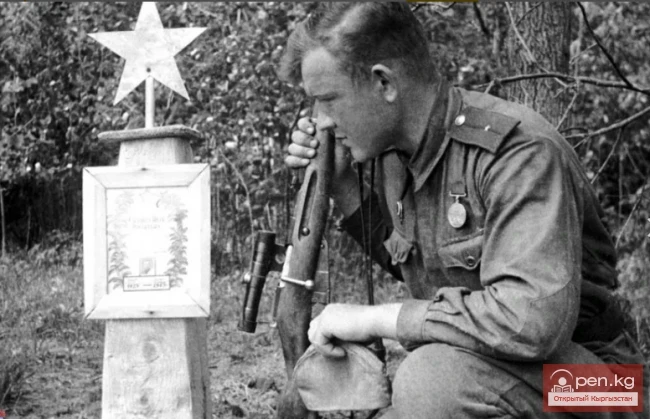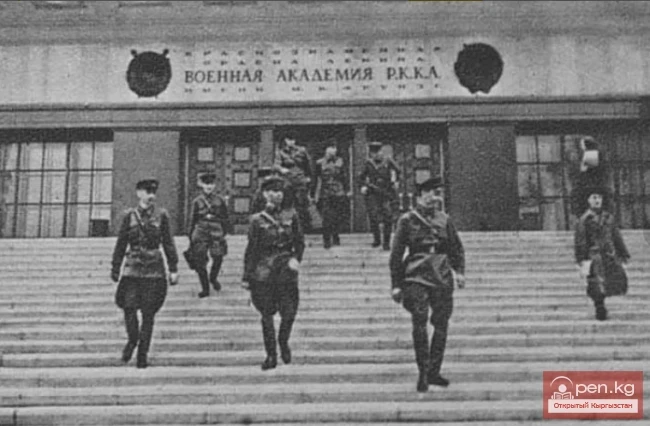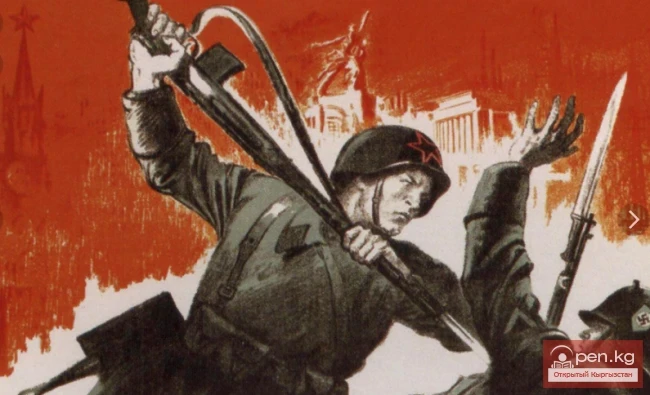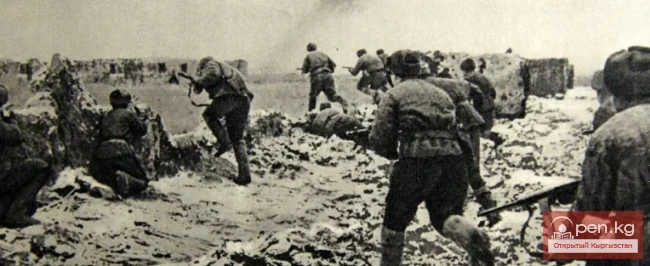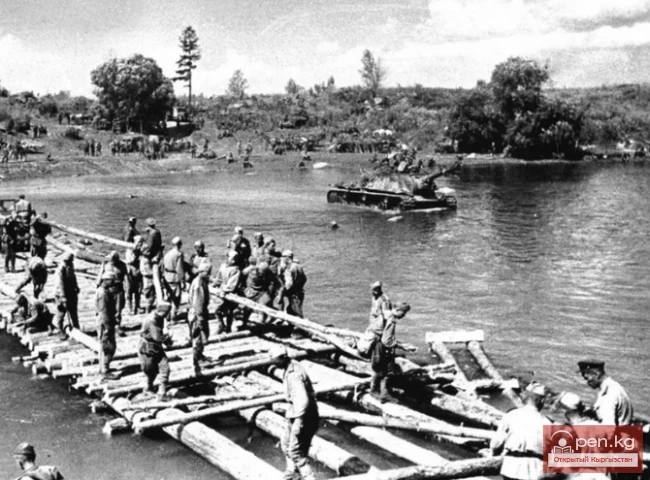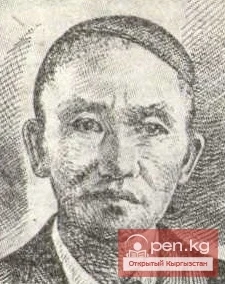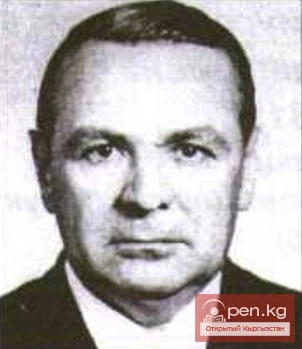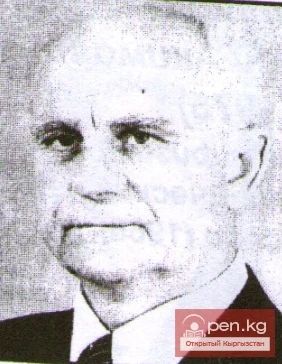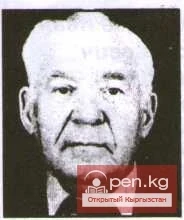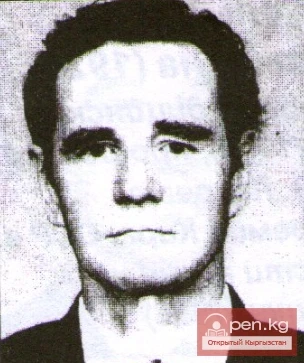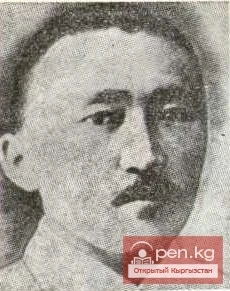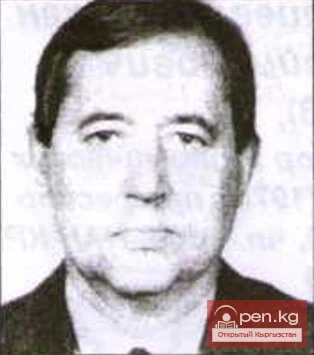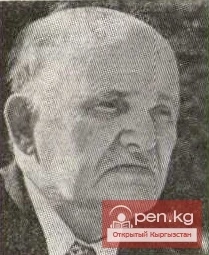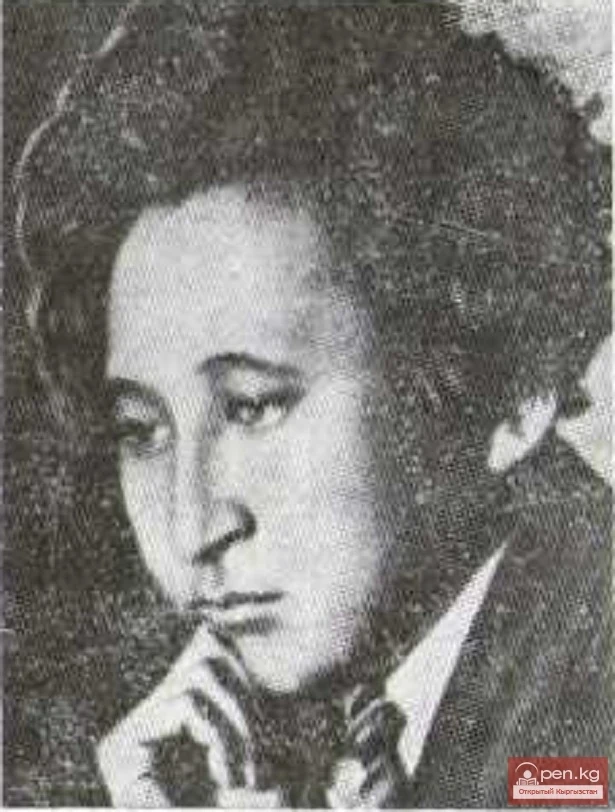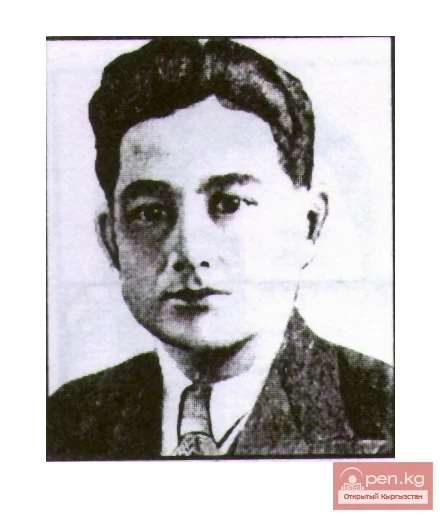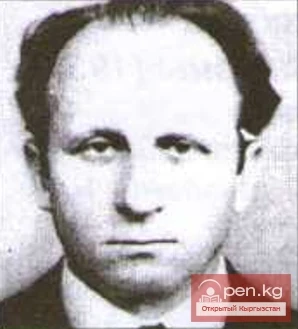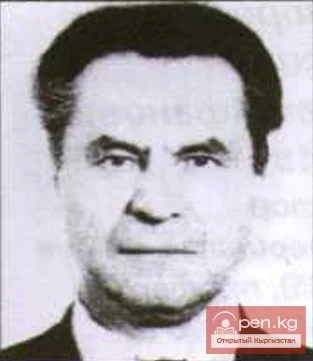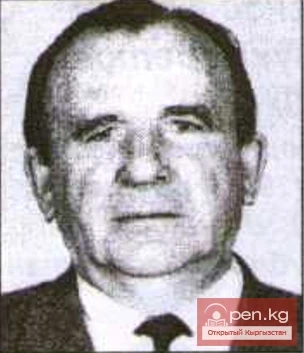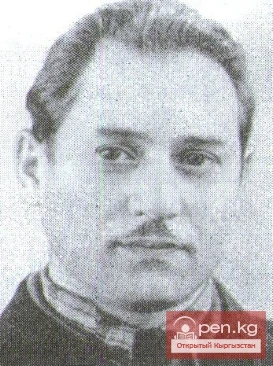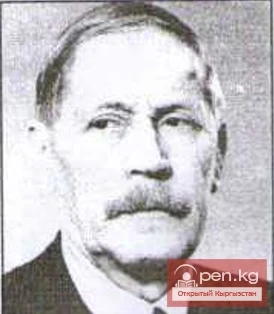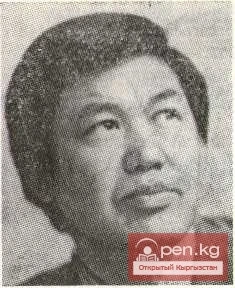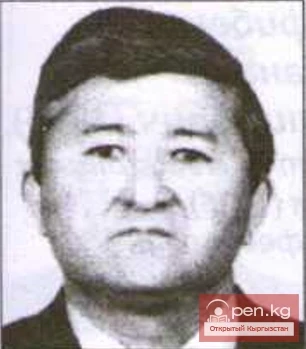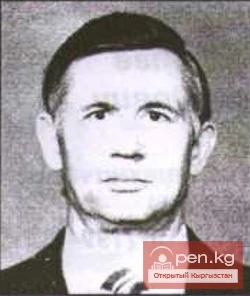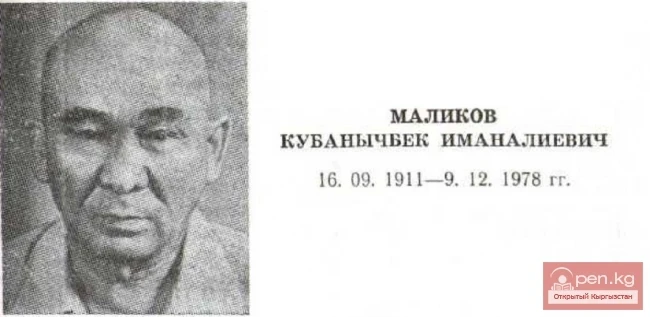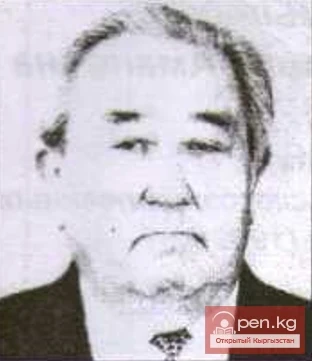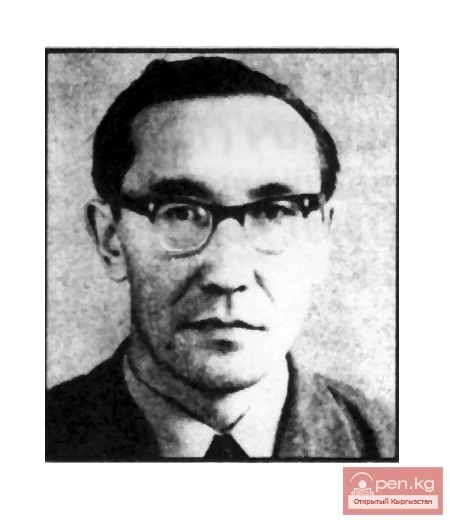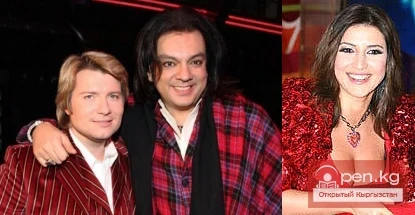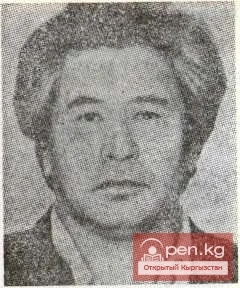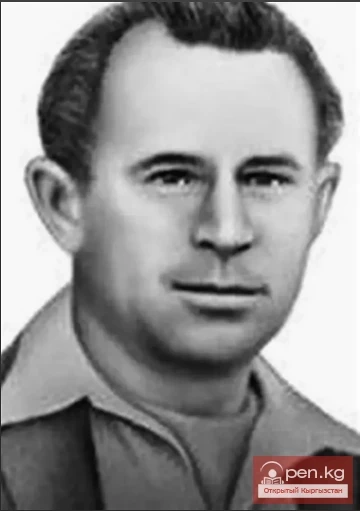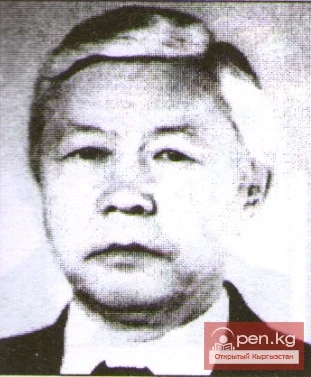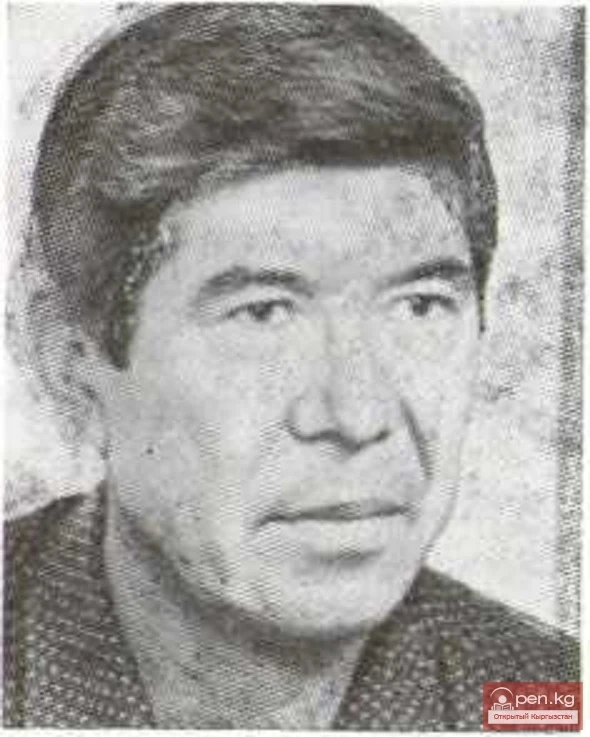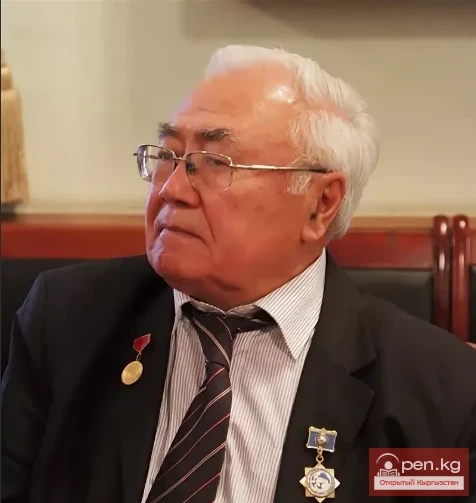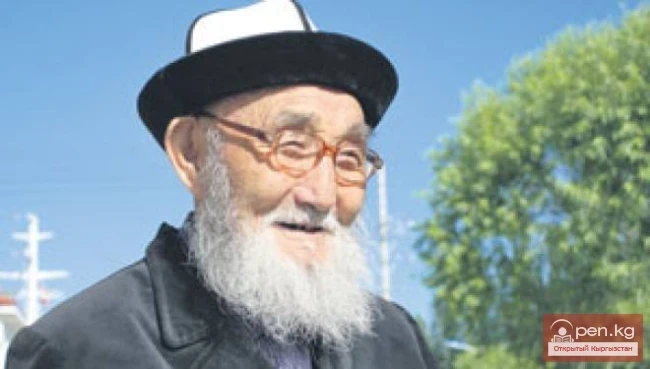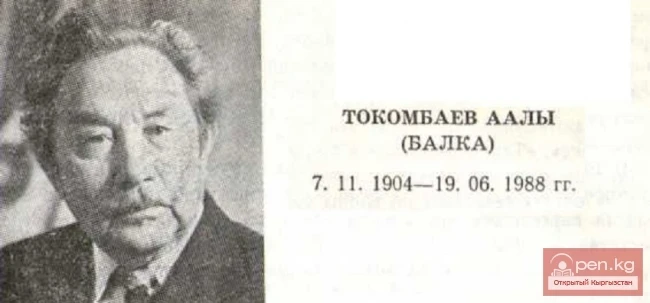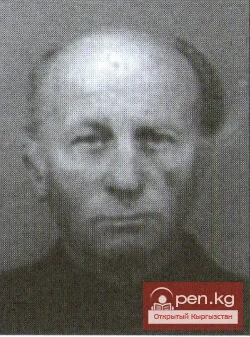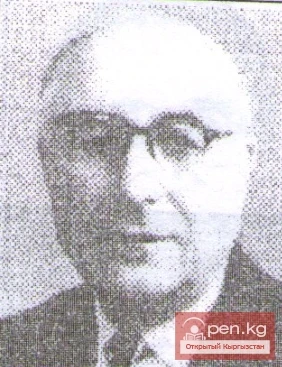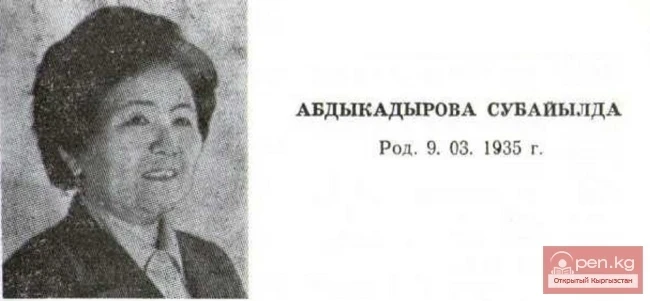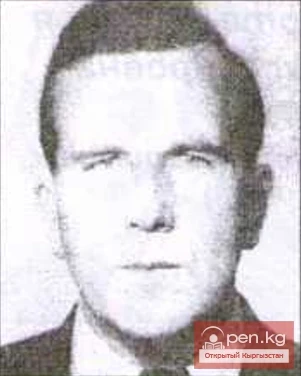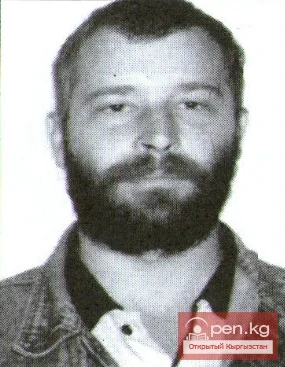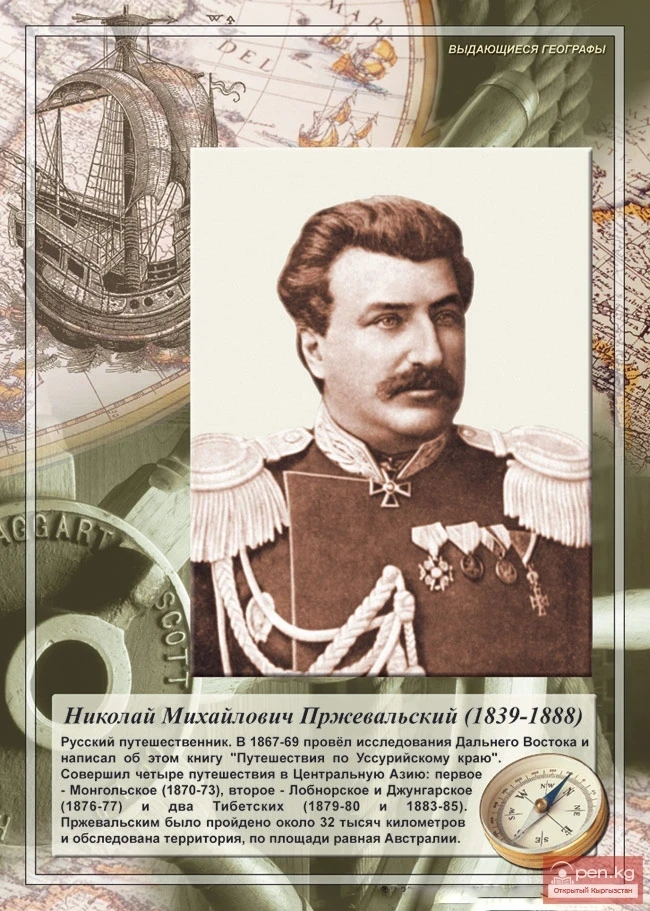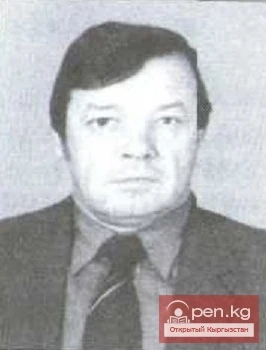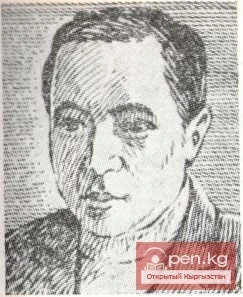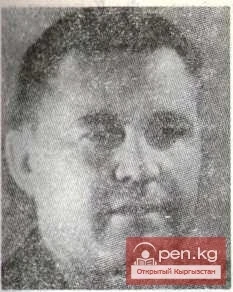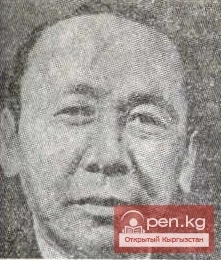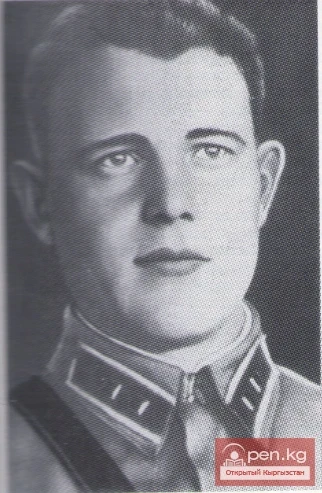
Hero of the Soviet Union Nikolai Semyonovich Kalashnikov
Nikolai Semyonovich Kalashnikov was the commander of a motorized battalion of automatic riflemen in the 19th Guards Tank Brigade (3rd Guards Tank Corps, 5th Guards Tank Army, 3rd Belorussian Front), Guards Major.
He was born on December 18, 1913, in the city of Pishpek (from 1926 to 1991 - Frunze, since 1991 - Bishkek - the capital of Kyrgyzstan), in a peasant family. Russian. In 1934, he graduated from an agricultural technical school. He worked as a zootechnician.
He joined the Red Army in 1935. In 1938, he graduated with honors from the Tashkent Infantry Red Banner School named after V.I. Lenin. After completing his studies at the school, he remained as a course commander. He became a member of the VKP(b) in 1941.
He participated in the Great Patriotic War starting in September 1942. He initially commanded a company and later a motorized battalion of automatic riflemen.
By the decree of the Presidium of the Supreme Soviet of the USSR on March 24, 1945, for exemplary execution of combat missions from the command on the front against the German-fascist invaders and for the courage and heroism displayed during this, Guards Major Nikolai Semyonovich Kalashnikov was awarded the title of Hero of the Soviet Union.
However, the Hero was not destined to receive the highest awards of the Motherland: the Order of Lenin and the Gold Star medal... He participated in the liberation of Lithuania. On August 14, 1944, in a battle near the village of Zhigarniki close to the city of Kaunas, Guards Major Kalashnikov N.S. was killed by the explosion of a German shell. He was buried in a mass grave of Soviet soldiers in the city of Kaunas (Lithuania).
He was awarded the Order of Lenin and the Order of the Red Star. Memorial plaques in honor of the Hero have been installed on the buildings of a school in Bishkek, the Tashkent Military School, and at house No. 62 on Ashmenos Street in Kaunas.
COMBATANT
...“Died a hero's death.” This is how the fate of most of the 20 million Soviet people who perished is marked. And there is not lifelessness and emptiness behind these words. Behind them is memory, behind them is a feat.
A feat is always unambiguous. It is the concentration of a person's will and courage. And love. Certainly. Love for those for whom this concentrated human energy is expended.
And yet, the feat varies: whether it is a soldier who shielded an enemy embrasure with his body, or a marshal who conceived, developed, and executed the destruction of a large enemy grouping. But there were also positions in the war that required both personal selfless bravery and commanding talent in the development of various operations.
Such positions included, for example, battalion commanders. And especially commanders of special forces battalions.
Guards Major Nikolai Semyonovich Kalashnikov, commander of the motorized battalion of automatic riflemen in the 19th Tank Brigade, was undoubtedly one of them, as he had to act according to operations developed by the headquarters, but each of them required both the strictest, unwavering execution and the independent making of the most unexpected decisions.
...The army for Nikolai Kalashnikov began long before the war. As an eighteen-year-old youth, he was drafted into military service and sent to the Tashkent Military Infantry School. Coming from a peasant family, he was inherently accustomed to performing any duties primarily diligently and thoughtfully. These traits of his character were noted during his service in the military school. It was precisely for his clear execution and ability to find an extraordinary solution to the assigned task that the command of the school appreciated him and kept him as one of their best students among the instructors.
And when the first volleys of the Great Patriotic War sounded, when the urgent question of replenishing the army with competent command personnel arose, Senior Lieutenant Nikolai Kalashnikov was sent to the Frunze Military Academy for an accelerated training course. By May 1942, he was at the front. Captain. Chief of Staff of the 543rd Rifle Regiment.
By June 1944, when the motorized battalion of automatic riflemen under his command made a brilliant raid behind enemy lines, Nikolai Kalashnikov had already received the Medal "For the Defense of Stalingrad" and the Order of the Red Star. More importantly, by that time he had gained valuable experience in conducting combat operations against the enemy.
On June 22, 1944, units of the 3rd Belorussian Front, directly participating in the operation to liberate Belarus, conducted reconnaissance by combat. As a result of swift attacks, the Soviet troops managed not only to clarify the location of the enemy's fire system on its front line but also to inflict significant damage on it in terms of personnel and equipment. However, before proceeding to recount the legendary raid of the motorized battalion of automatic riflemen under the command of Guards Major Kalashnikov behind enemy lines, let us recall the assessments of the existing situation on the fronts given by military authorities such as G.K. Zhukov and A.M. Vasilevsky, who coordinated the actions of the troops in implementing Operation "Bagration".
G.K. Zhukov: “At the beginning of the offensive, the line of the front edge of the defense of the German troops of Army Group 'Center' ran from Polotsk to Vitebsk and further along the line Orsha — Zhlobin — Kapatkevichi — Zhitkovichi and along the Pripyat River. The cities of Polotsk, Vitebsk, Orsha, and Mogilev were in enemy hands.
These large cities, plus the Dnieper, Drut, Berezina, Svisloch rivers, and a number of smaller, heavily marshy rivers and streams formed a strong basis for the deeply echeloned defense of the enemy, which covered the most important western Warsaw-Berlin strategic direction.”
A.M. Vasilevsky: “On the Orsha direction, the 11th Guards and 31st Armies encountered an exceptionally developed engineering and fire defense of a strong grouping of the enemy. Here, the troops of the Western Front had already suffered setbacks in winter.”
Such was the characterization of the enemy's defensive system given by outstanding military leaders.
Now let us turn to the award sheet of Guards Major N.S. Kalashnikov, in which he is nominated for the title of Hero of the Soviet Union.
“During the combat operations on the 3rd Belorussian Front in the area of Selets - Bobr from June 24 to 27, 1944, Comrade Kalashnikov demonstrated exceptional ability to command and displayed valor, courage, and heroism. His battalion, advancing in battle towards Selets - Smolyany - Tolchin - Bobr, inflicted enormous losses on the enemy in personnel and equipment. In these battles, he captured and destroyed up to 2000 enemy soldiers and officers, 190 vehicles, 500 carts with cargo, 5 self-propelled guns, 35 armored personnel carriers, 2 anti-tank batteries, an ammunition depot, and 2 railway trains. In the area of Ozerets - Tolchin, the battalion, in cooperation with tanks, on June 25, 1944, cut off the enemy's retreat routes along the highway and railway from Orsha to Minsk, thereby disrupting the orderly retreat of German troops.”
Let us read this paragraph of facts from the award sheet again, and we will see behind these numbers the deadly submachine guns, machine guns, and artillery directed at Soviet fighters, we will feel the courage and heroism of our soldiers, and the military talent of Soviet commanders...
Unfortunately, there are extremely few testimonies about the battles of the motorized battalion under the command of Guards Major Nikolai Semyonovich Kalashnikov. But even the testimonies that exist are enough to outline, albeit in general terms, the actions of the motorized battalion and its fearless commander.
...After defeating the fascists near Vitebsk, the motorized battalion drove them towards Orsha—a major junction station at the intersection of three railroads and the Moscow-Minsk highway, which had been turned by the Germans into a powerful defensive point, defended by two infantry divisions and one motorized division.
On June 26, 1944, the 19th Tank Brigade, which included Kalashnikov's motorized battalion of automatic riflemen, received orders from command to break into the rear of the Orsha grouping of the enemy, cut the railway and highway from Moscow to Minsk, and then seize the well-fortified railway station and the city of Tolchin.
After receiving the order, Guards Major Kalashnikov summoned the commanders to his command post, briefly outlined the task facing the battalion, specified the exact order of movement for the column, and within an hour, the motorized battalion of automatic riflemen set out to break through the front.
Ahead, a company of automatic riflemen under the command of Shutov moved on tanks and armored personnel carriers, while a self-propelled battery under the command of Mikhailov closed the column, having a dual task: on one hand, to ensure the offensive momentum of the guardsmen, and on the other hand, to cover them in case of an unexpected enemy attack from the rear.
Without giving the Germans a chance to recover,
The battalion of Guards Major Kalashnikov captured a large settlement of Smolyany, cleared it of the enemy, and continued its advance towards the city of Tolchin.
The battalion began its assault on the city from the southeast, quickly occupied the outskirts, and... stopped. This was one of the tactical moves of the commander: when the battalion halted at the outskirts, the Germans assumed that the attacking momentum had exhausted itself and launched a counterattack. This was precisely what Kalashnikov aimed for.
Forcing the enemy to abandon their heavily fortified defensive positions, the Soviet soldiers launched a powerful attack that overturned the fascists, and by the end of the day, the city was completely cleared of the occupiers. For the brilliantly conducted operation to liberate the city of Tolchin from the fascist invaders, the brigade commander conveyed the gratitude of the commander of the 3rd Belorussian Front, Colonel-General I.D. Chernyakhovsky, to the soldiers of Kalashnikov's battalion, which undoubtedly further boosted their fighting spirit.
Practically not resting from the bloody battles, mercilessly crushing large and small enemy groupings, the 19th Tank Brigade approached the Berezina River south of the city of Borisov on June 30, 1944.
The fascists, receiving a personal order from Hitler to stop the Russian troops at all costs at the Berezina, significantly fortified the right bank, blew up the bridge, and day and night conducted continuous hurricane artillery and mortar fire on the left bank. The only task facing Kalashnikov's guardsmen was to cross the river.
The commander gathered all personnel. His speech was brief: “Dear comrades! Friends! Our battalion has received the order to be the first to cross the Berezina. This is an honorable combat task. 132 years ago, on this historic river, the glorious Russian troops under the command of the great commander Field Marshal Kutuzov decisively defeated the hordes of Napoleon.
And it is no coincidence that the operation to liberate Belarus is named after the legendary hero of the Borodino battle, Pyotr Ivanovich Bagration. Let us not disgrace the honor of Russian arms... We have no means for the crossing. Let us together decide how to successfully accomplish the task set before us...”
The first to volunteer to cross the Berezina were the communists and Komsomol members from the automatic rifle company. Some on logs, some on tiny rafts, some simply swimming under the hurricane fire of the enemy, they plunged into the water, and soon three automatic riflemen—Khodirev, Sulodin, and Shuyskiy—secured themselves on the right, enemy bank, providing accurate fire to facilitate the crossing of their comrades.
Soon reinforcements arrived on rafts. Despite numerous counterattacks, the fighters managed to secure themselves, and then, raised in the attack by their commander with shouts of “Hooray!” and “For the Motherland, forward!” they began to crush the enemy.
The fierce attack was short-lived; the Germans abandoned their trenches and fled... The battalion began to construct a crossing for the brigade's tanks, and by morning it was ready.
...For these battles, Guards Major Nikolai Semyonovich Kalashnikov was nominated for the title of Hero of the Soviet Union.
He did not have time to receive this title. On August 14, 1944, he was killed north of Kaunas.
A. ALYANCHIKOV
